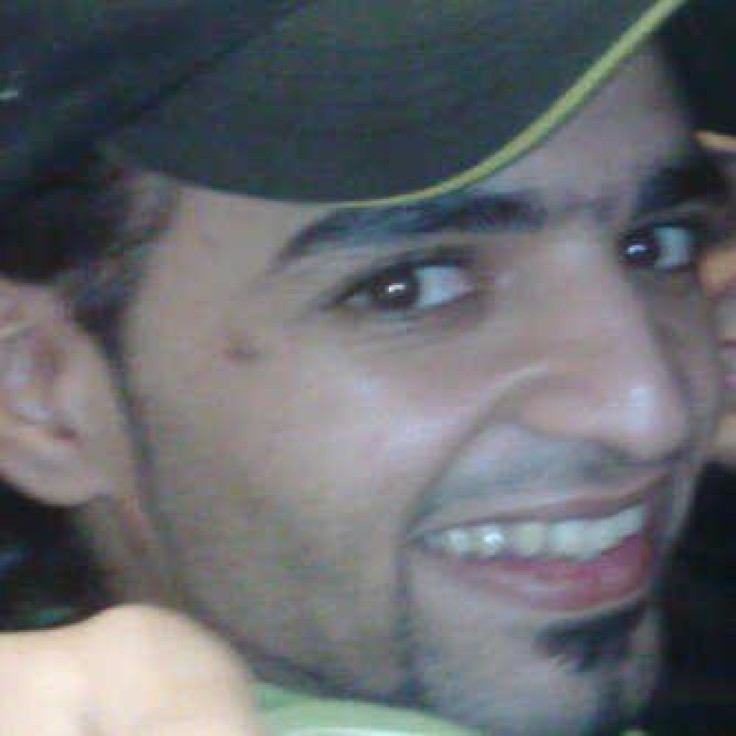Journalist Ahmed Ismael Hassan al-Samadi Dies as Bahrain Violence Continues

A journalist who was shot during a peaceful anti-government demonstration in Bahrain has died in hospital.
Ahmed IsmaelHassan al-Samadi, 22, from the Shia village of Salmabad, was shot in the right thigh as he filmed teargas being fired on protesters in the village, an industrial area on the edge of Manama, Bahrain's capital.
Witnesses said the citizen journalist and cameraman was shot by armed men, who were accompanying security forces in a civilian car. The men fired live rounds of ammunition at the crowd to suppress the protest. The claim could not be verified.
Al-Samadi was allegedly targeted for carrying a video camera and filming violations committed by security forces.
Opposition groups have attributed his death to the excessive use of force by security forces to quell anti-government protests in several parts of the country.
According to activists, armed militias dressed in civilian clothing often accompany security forces during protests.
The Bahrain ministry of interior confirmed the death and said police are investigating the case as murder.
The government has denied it is responsible for the death.
The killing has intensified violence in the run-up to the Bahrain Grand Prix, which is set to take place from 20-22 April at the Sakhir circuit, southwest of Manama.
A number of protests have recently been organised to push for the race to be cancelled, especially since the government is seeking to use the prestigious event to salvage its battered reputation.
The Bahrain Centre for Human Rights said in a statement that the security forces have been attempting to quell protests across the country. Many serious injuries were reported, including a 15-year-old boy who was hit in the arm with a teargas canister.
Rights Activist Arrested
The organisation also said its president Nabeel Rajab, who is an outspoken critic of the government'scrackdown on the pro-democracy movement, was arrested on 31 March ahead of a planned march in Manama.
The ministry has confirmed the arrest and said in a tweet that Rajab was arrested for "calling [for] participation in [an] unauthorised rally and illegal gathering." .
The demonstration was organised in support of Abdulhadi al-Khawaja, 52, one of Bahrain's most prominent human rights activists, who is serving a life sentence for his role in anti-government protests last year.
He has been on hunger strike for more than 50 days to protest having been unfairly tried by a military court and his health has rapidly deteriorated, leading Amnesty International to call for his release.
Amnesty International Middle East and North Africa Director Philip Luther said: "Bahrain must ensure that al-Khawaja is released immediately and unconditionally."
His family told CNN they had been informed that he was taken to hospital, but they are not allowed to visit him.
Although Rajab has been released, his lawyers said he could still be charged and face trial.
Bahrain: A Silenced Uprising?
Demonstrations asking for more political reforms, including calls for the prime minister to be elected rather than royally appointed, have failed to gain international recognition.
Activists and opposition parties complain that while calls for more freedom and reform were largely supported by the international community in Egypt, Libya and Tunisia, activists in Bahrain are criticised for opposing the monarchy.
Last year, between February and March, the Bahraini regime, backed by troops from Saudi Arabia and the United Arab Emirates, led a brutal crackdown on protesters.
King Hamad bin Isa al-Khalifa called for the creation of a Bahraini Independent Commission of Inquiry (BICI). In its reports, the BICI acknowledged that the authorities had committed a number of human rights abuses, including torture.
The king has now said he is committed to follow the BICI's advice and recommendations to prevent repeated abuses from taking place and has reiterated his commitment to reform.
Activists and opposition leaders insist the security forces are continuing to engage in human rights abuses, including the excessive use of force and poisonous tear gas.
© Copyright IBTimes 2024. All rights reserved.





